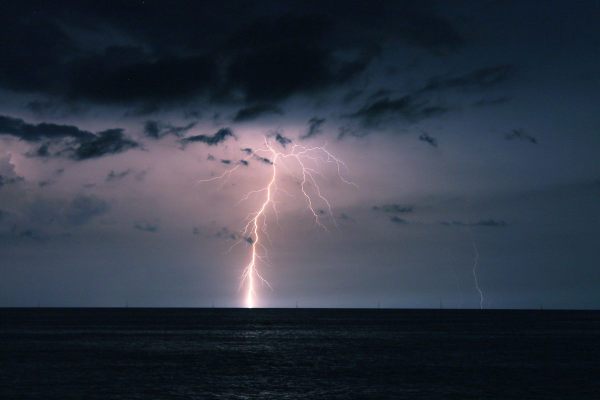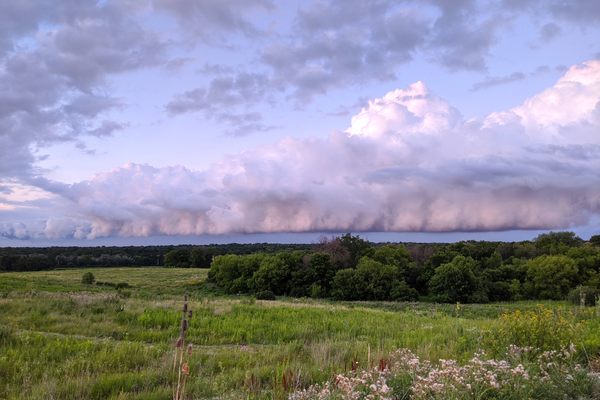Hurricane Irma Has Left the Caribbean Brown and Barren
Winds up to 185 miles per hour stripped trees bare, but the vegetation will gradually return.

The numbers behind the destruction wrought by Hurricane Irma, which in early September ripped through the Caribbean at Category 5 level, then hit Florida, are staggering. In St. Bart’s and French St. Martin, the cost of damages is an estimated $1.4 billion, according to the AP. About a million people lost power in Puerto Rico, and 90 percent of the electrical infrastructure in Anguilla was impacted by the storm. And for the first time in 300 years, reports CNN, no one lives on the island of Barbuda.
Before and after images from NASA satellites offer a stark visual of the damage. Islands that are normally covered in lush vegetation now appear muddy and barren. Maximum sustained winds of 185 miles per hour stripped trees bare in the Virgin Islands. Barbuda is now a dark shade of brown, contrasting with nearby Antigua, which remains fairly green—the island escaped the eye of the storm.

But according to Edmund Tanner, a biologist who studies how plants weather hurricanes, the lowland areas of the islands will likely be green again in about six months.
“Native vegetation on these islands has been through hundreds of hurricanes since the last major change of climate [at the end of the last ice age] and have been naturally selected to lose leaves and small branches and re-sprout,” Tanner said in an interview with NASA’s Earth Observatory blog. “On the ground, there will be lots of sprouts on tree trunks. For larger trees, the surviving branches will produce leaves and small branches and slowly these will shade out and kill the [sprouts] produced on the lower parts of trunks.”
In the small areas where tree roots were flooded with salt water from the ocean, recovery will take much longer. If the trees died, said Tanner, “the soil will need to be desalinated naturally by rain, and seeds will have to germinate and grow.”
















Follow us on Twitter to get the latest on the world's hidden wonders.
Like us on Facebook to get the latest on the world's hidden wonders.
Follow us on Twitter Like us on Facebook